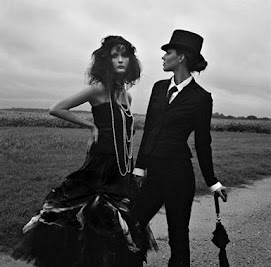Independent and self-sufficient vs. dominated and handled
Shouldn’t women be strong, independent and self-sufficient beings? Why should any woman have to depend on a man so vigorously? Why is it that Nora depends so greatly on her husband Helmer for money?
As we were reading in class today, it bothered me how Nora kept pleading to Helmer for money. Personally,I believe that women are more powerful and dominant than men in most cases. Generally, women can handle emotional, stressful and more difficult situations better than men. I’ve read in the past that women tend to deal better with these situations because unconsciously we want to relate on a personal level. So my question is, although Nora was living during the 19th century, a time where women were diminished and unvalued, why did she let herself be put down in that way by her husband, the one person who was supposed to love and respect her unconditionally? Why doesn’t she stand up for herself as Beneatha did in A Raisin in the Sun? Does she simply not care/mind settling for where society places her, labels her as and restricts her from doing?
First Post by Tuesday, 11:59PM
9 years ago


